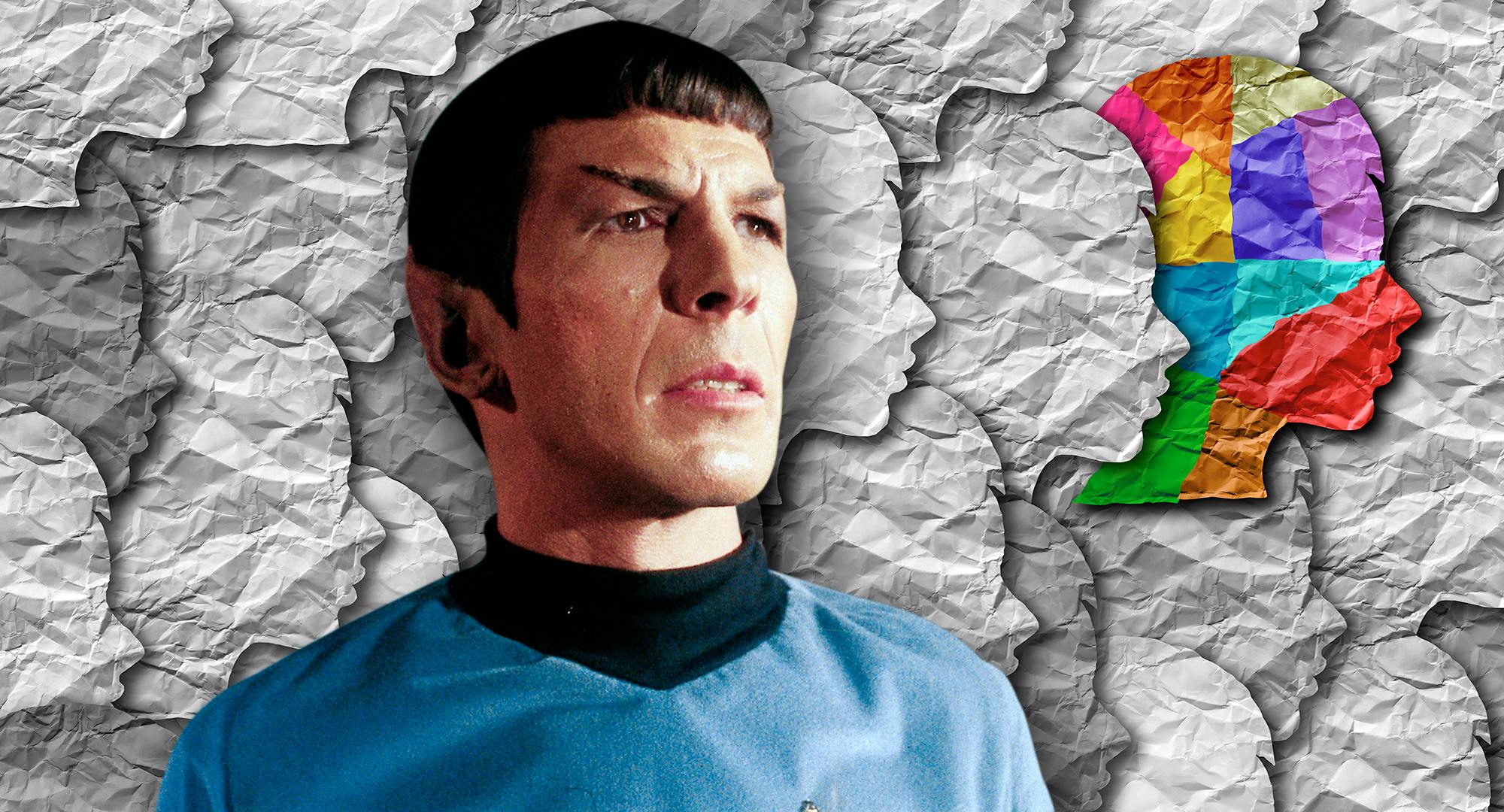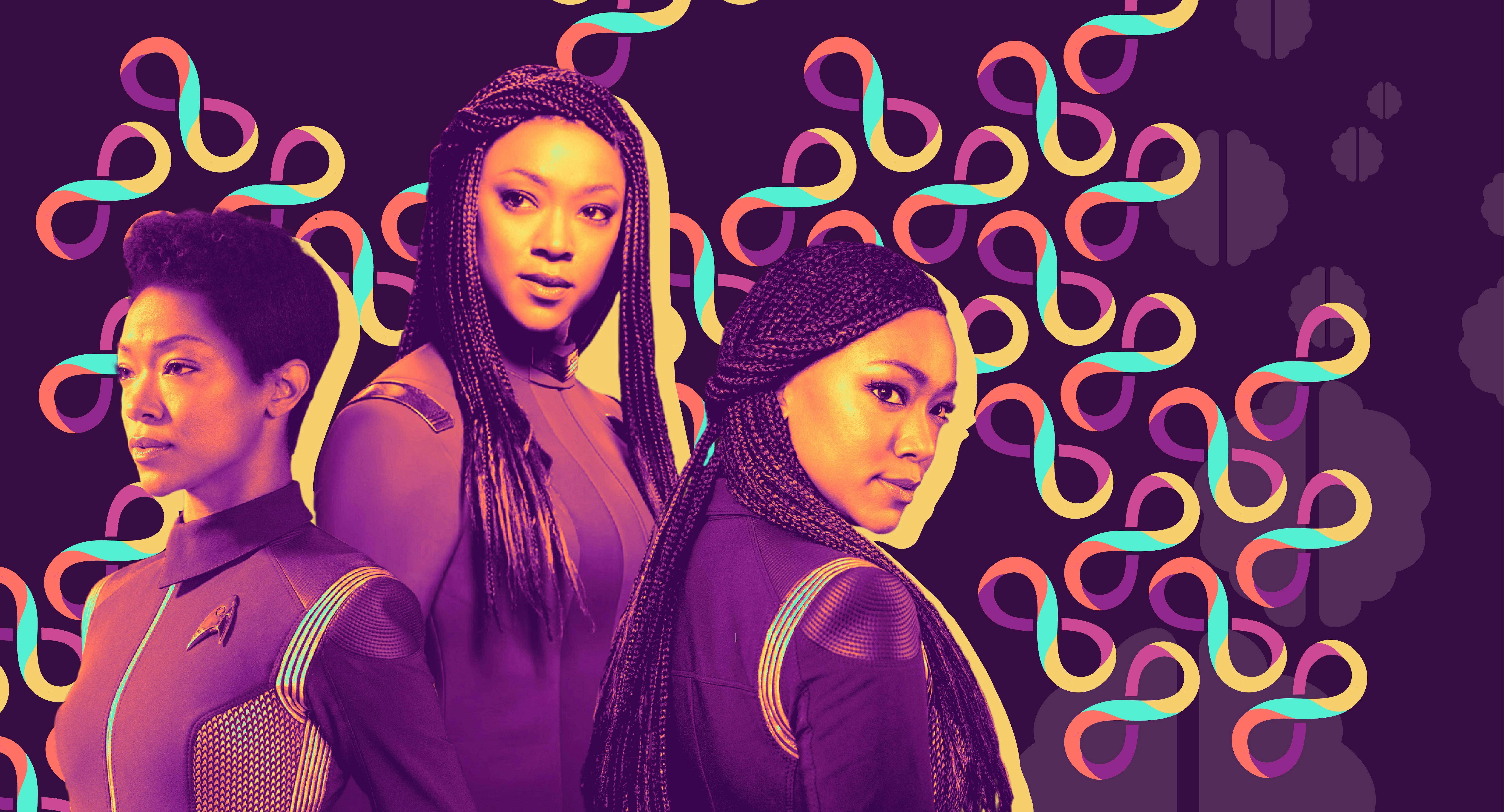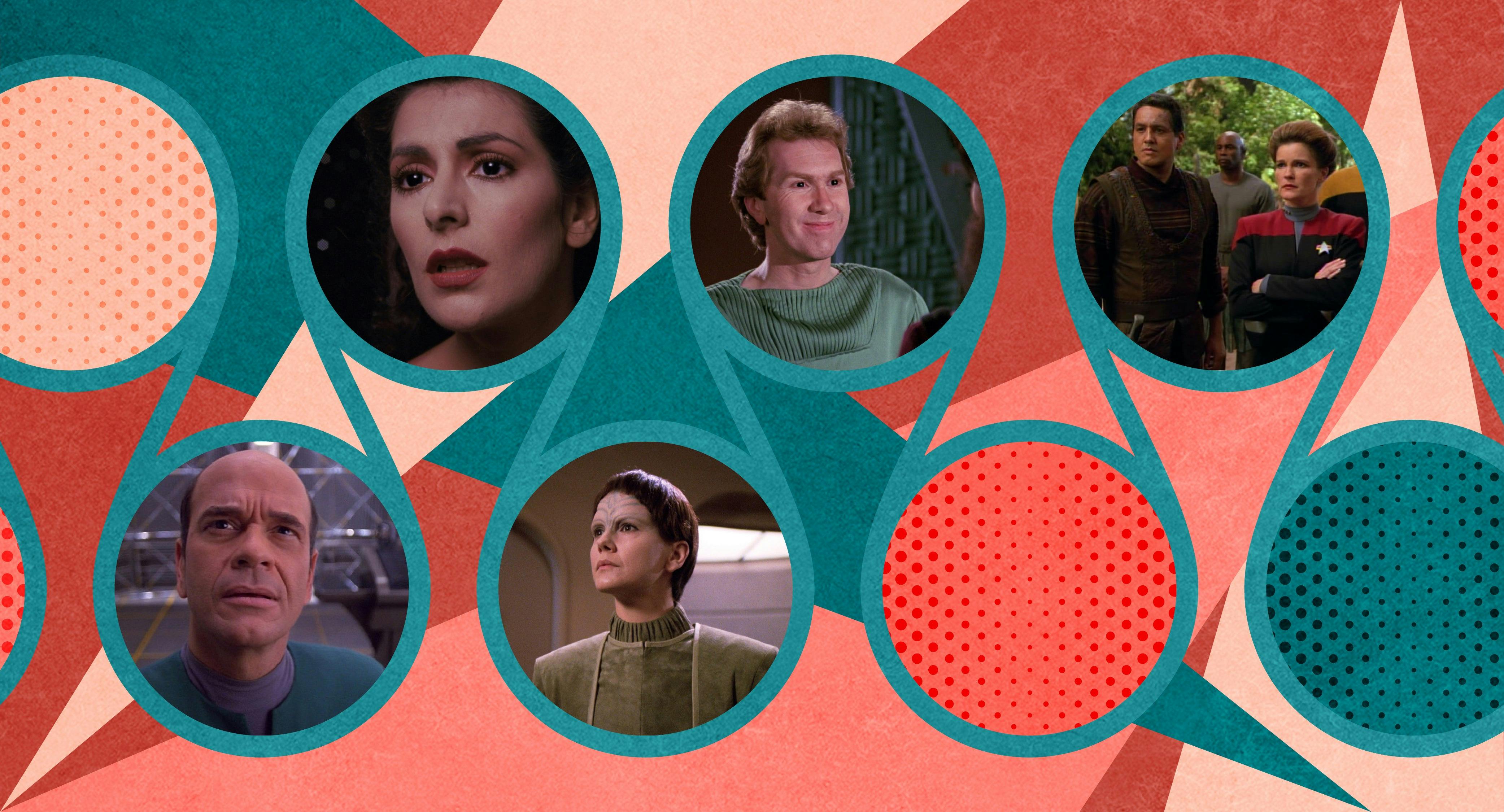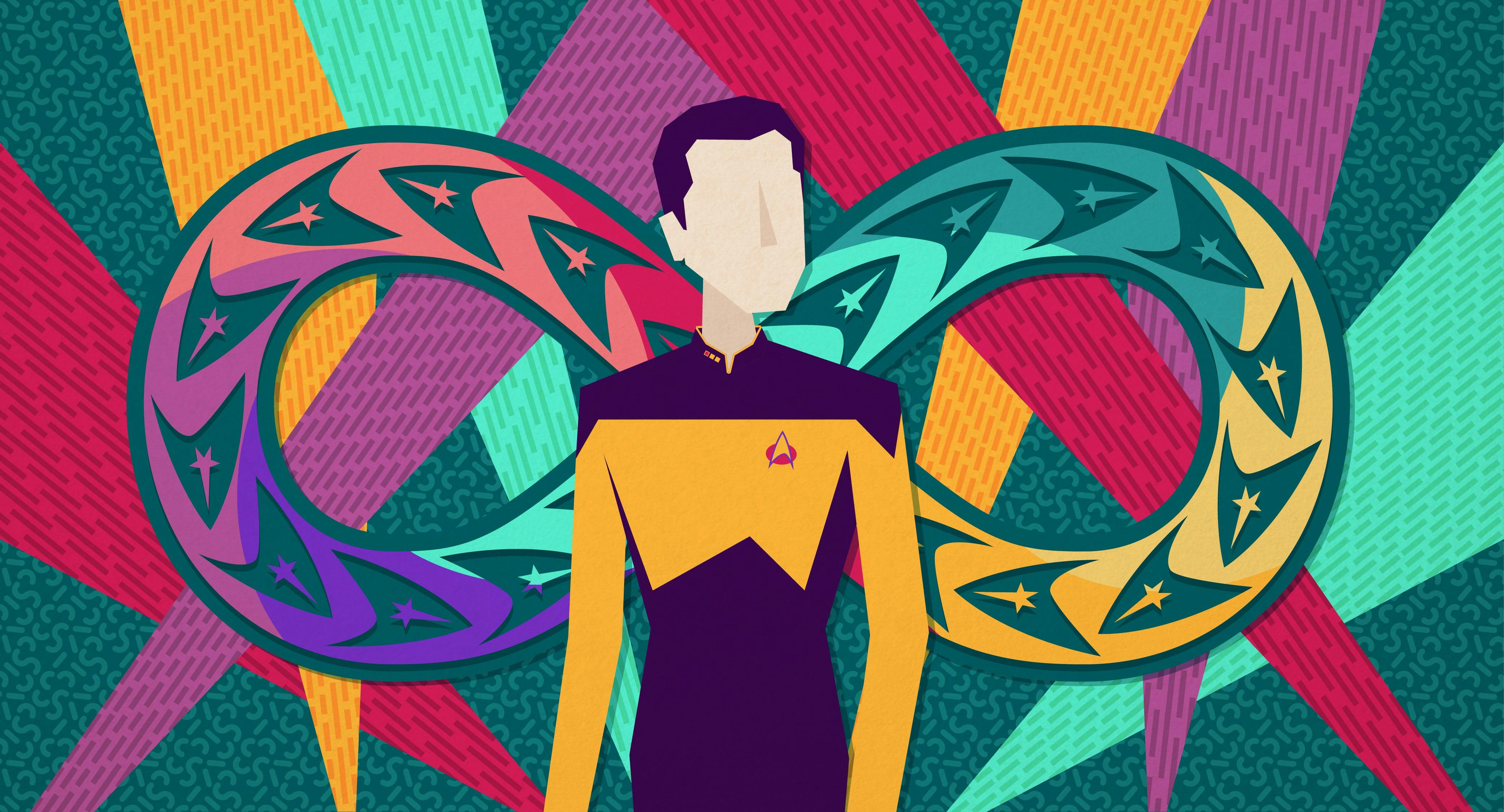Published Aug 8, 2024
Living in Absolute Candor: How Elnor Offers Unique Neurodivergent Representation
Giving a community more unique versions of representation helps make the world see them for exactly who they are.
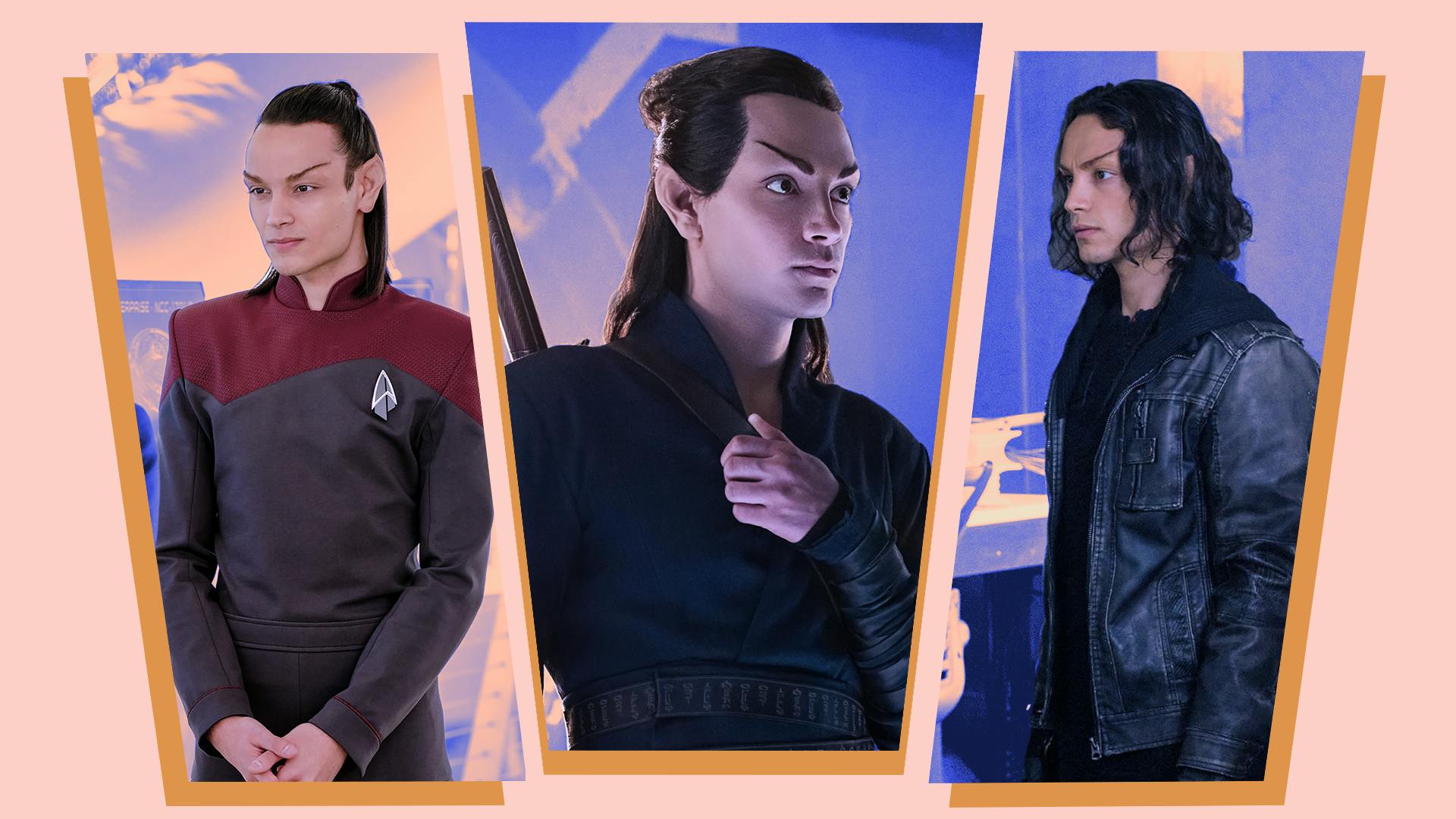
StarTrek.com
Let's start this off with a possibly controversial statement — autistic people love Star Trek because Star Trek is full of autism.
Now, with that hook out of the way, we should back that idea up a little and define what it means to be autistic. As described by the National Institute of Mental Health, "Autism spectrum disorder (ASD) is a neurological and developmental disorder that affects how people interact with others, communicate, learn, and behave."
The Star Trek universe is a unique space that represents a wide variety of marginalized communities, whether on purpose or incidentally. If you go to Google and research autism and Star Trek, you'll find a lot of the usual suspects: Spock, Data, Worf, Seven of Nine.
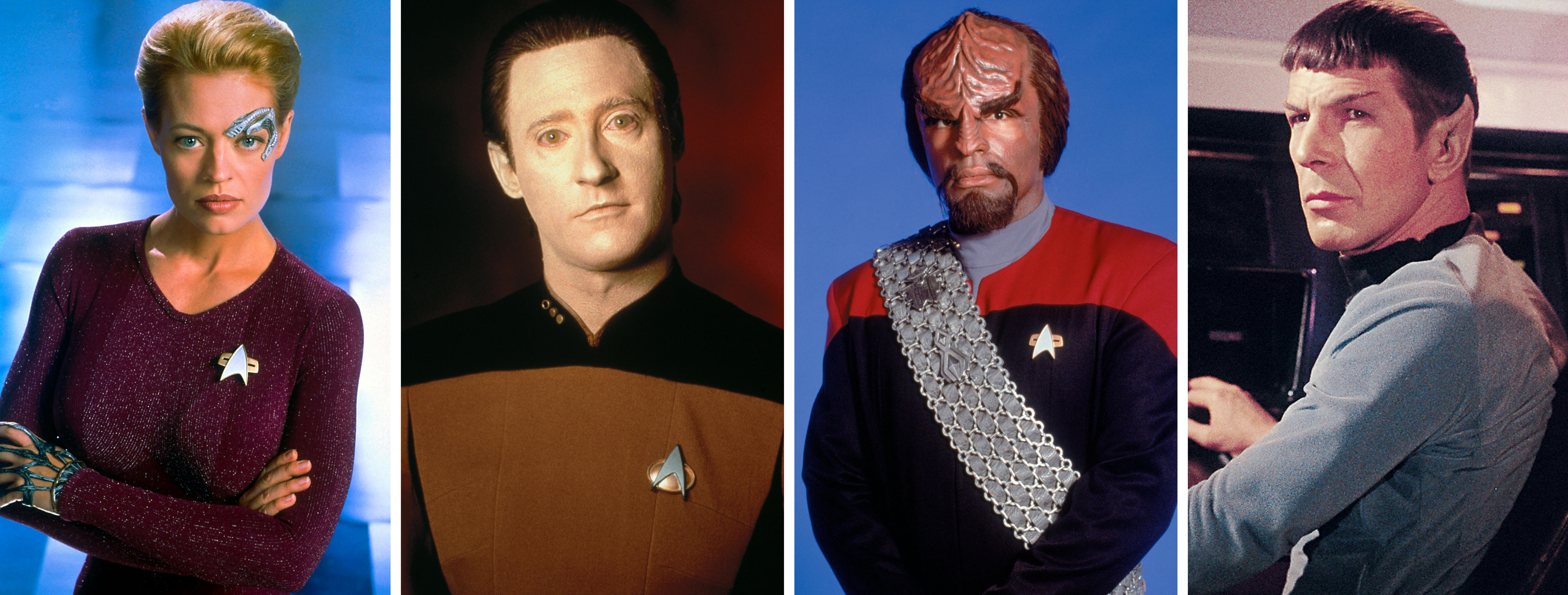
StarTrek.com
With and Seven of Nine in particular, they're poster-children for what people expect from autism — stoic demeanor, a misunderstanding of basic human social cues, an emotionally withdrawn facade. However, Data and Seven only cover a certain spectrum of autism. They don't need academic or work accommodations, nor do they seem to have as many sensory issues (other than when something or someone triggers their "processors"). They represent a prodigal sect of the autistic community that excels academically/career-wise while their main challenge is ultimately emotional connectivity and empathy.
However, as autism is described as a spectrum disorder, not a monolith, there are many autistic people who don't fit that description. Furthermore, there's more to Star Trek's autistic representation than stoic aliens and androids trying to find their humanity. Some autistic individuals struggle the most with their sensory issues, or with the modernized work structure. Some understand emotions just fine but constantly grapple with, when, and where they're "supposed" to discuss certain things. Some even are exceptionally emotionally intelligent, but still experience the social disconnect, the hyper-fixation, and the bluntness. So, Seven and Data's struggles to "feel" feelings is particularly inadequate for that kind of person. In fact, the emotional autistic often lacks any representation at all.
That's where Elnor comes in.

"Absolute Candor"
StarTrek.com
Elnor is a character introduced in the 2020 series, . A young Romulan raised by the — an order of truth-telling warrior nuns — Elnor is blunt, brash, sensitive, and very in tune with his emotions. He took their creed of the Way of Absolute Candor (a motto of complete honesty at all times) and devoted himself to it, even when it makes others uncomfortable. Elnor spends his time in Picard following the ex-Admiral to help protect him on his journeys. As a character, Elnor likes touch, doesn't stim, and seems to have a very close, intimate relationship with his own feelings. While being so young, he's easily the most emotionally open and honest character in the entire show. So, how can such an insightful person be autistic, you might ask?
Well, remember, autism is a spectrum.
When diagnosing autism, there are eight categories in which autistic people are scored by. Once they reach a certain threshold of impact during their autism assessment — where they answer questions, share life and medical history, and describe how these possibly autistic behaviors affect their day-to-day life — they are diagnosed as autistic. However, their diagnosis can come from wildly different combinations of the eight criteria, hence being a spectrum disorder.

"Absolute Candor"
StarTrek.com
If you ignore the preconceptions people have about autistic people and emotions, Elnor's way of approaching life is very autistic-coded. Within the eight criteria, he'd score more neurotypically on sensory processing, motor skills, and communication. He is a master swordsman comfortable with his senses and is well attuned to his emotions and how to express them.
However, there are still five more criteria on that autism assessment list. One of Elnor's most obvious autistic traits is his social awareness. In a combination of his Absolute Candor and rigid thinking, he speaks and acts whatever he thinks and feels, regardless of how those around him react. For example, though clearly being a sore spot for Picard, Elnor openly shares his bitterness and disappointment in the admiral abandoning him with the nuns ("").
Similarly, in his hug with Seven of Nine in "," Elnor throws his arms around her and openly expresses his grief despite her clear discomfort with it. She accepts it because he's had to witness something heartbreaking (the death of the Borg Hugh), but Elnor is not adept at "reading the room." He is unapologetically, emotionally honest and married to Absolute Candor, no matter the situation. And you could blame that on the Qowat Milat creed, but other warrior nuns have shown the ability to keep information to themselves until the right time (""). They do not lie, but they also make personal decisions on just how honest to be. Elnor doesn’t. It's full, unabashed honesty and nothing else. That is the exact rigid thinking you'd expect out of an autistic person.

"Stardust City Rag"
StarTrek.com
Need more evidence? Beyond his lacking social acuity, Elnor repetitively trains (Repetitive Behavior), constantly focuses on threats (Preservative Thinking), and hyper-fixates on given rules and his own goals to his own detriment (Executive Dysfunction). For example, when Picard and co., are pretending to be undercover in "," not only does Elnor need clarification that Rios is not actually a Facer when they're getting in disguise, but he also doesn't understand when the heist ends. He has to ask Picard, "Are we still pretending?" even when the fake voices have been dropped, there are several guns drawn, and Seven's hand is to Bjayzl's throat.
Yes, Elnor is a sensitive and thoughtful young man with few visible symptoms. And he's got very rigid thinking, aggressively hyper-focused goals, and zero social finesse. When combining all his traits, Elnor is more autistic than he is emotionally intelligent. It's just that too many people get distracted by the emotion to see him for exactly who he is.

"Absolute Candor"
StarTrek.com
In recent years, there's been a well-documented under-diagnosing of autism in girls and women. One of the major factors of this phenomenon is the emotional intuition and empathy found in this demographic. Because of the way society conditions young women in emotional acuity, even autistic women tend to have much higher attention and vigilance to others' feelings than the average autistic man.
However, gender is not the only determinant of this hyper-empathy. Studies have shown that autism is less a lack of empathy and more a "disequilibrium," meaning they have unexpected levels of lacking or overactive cognitive or affective empathy, which contrasts regular neurotypical empathy expectations. Basically, the gist is that autistic people aren't inherently underfeeling. For example, an autistic person is perfectly capable of empathizing with the pain of a death, but instead of focusing on the loss at hand, they might return to the remembered pain of their own losses. Or, they might focus more on everything the dead person might have lost instead of the people grieving in front of them. Autistic people don't often feel and empathize the exact same way neurotypical people do — that's where the neurological and social disconnect is. It's not a lack of empathy, but a difference in empathy. Therefore, some autistic people are still autistic while also being quite emotionally attuned to themselves and the people around them.
Whatever the conditions of this hyper-empathy, this behavior doesn't align with the original, narrow, white male-informed version of the autism diagnostic criteria, and is therefore under-diagnosed. And because this kind of "empathetic" autism is under-diagnosed, it's also woefully underrepresented and misunderstood. So, the autistic people who sit on this part of the spectrum can often feel like they don't properly fit in with the autism they see in the medical field, in their communities, and in media.
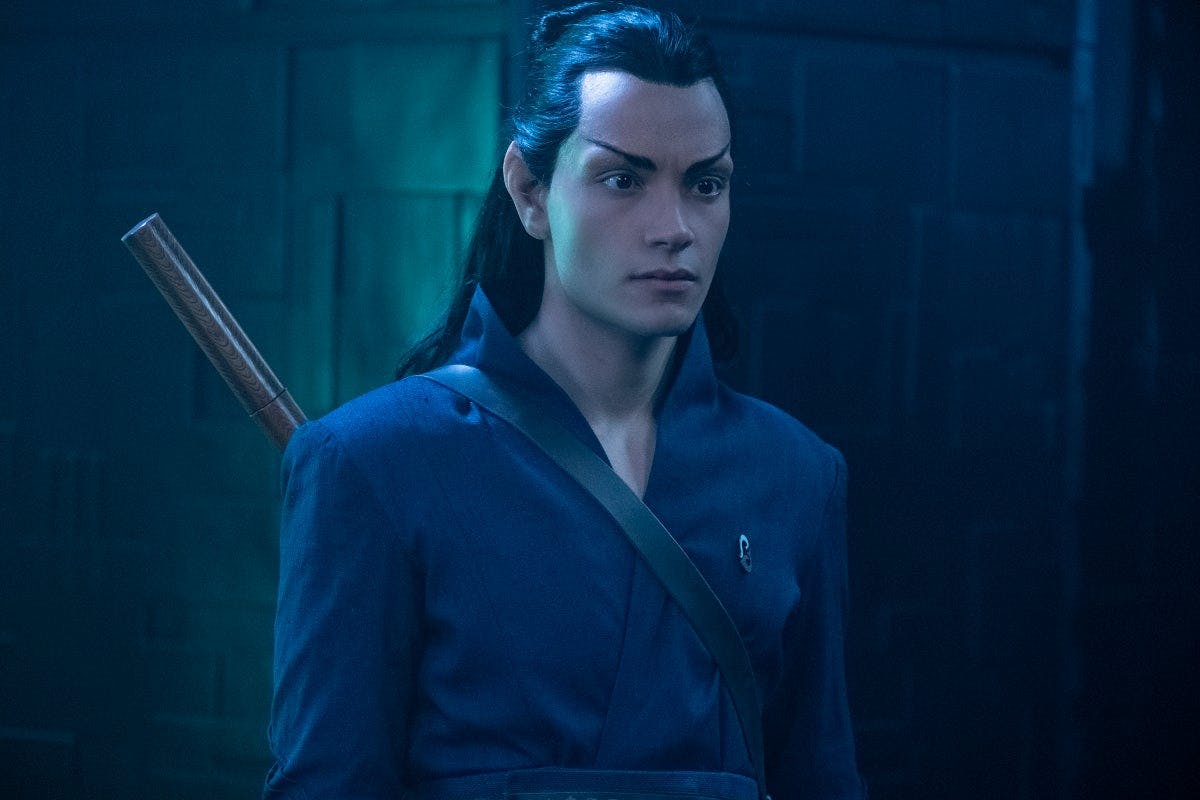
"Broken Pieces"
StarTrek.com
As a kid, I sort of identified with Data. Matter of factness. Social awkwardness. Hyper-fixation. Even if it wasn't perfect, he was a rare comfort for me. So many kids had characters they looked at and said, "I’m brave like Percy Jackson" or "I like being a free spirit like Jo March!" I had an android who wanted to find humanity and community. However, as much as I felt like that android, I also felt fiercely opposite to him, too. I was deeply emotional and intuitive, something Data never experienced. In fact, his whole goal was to learn how to understand and feel human emotions, while I oftentimes wished I felt them less. It was strange, knowing I felt alien to humans, but also was too alien for the android. I had no role models for what I might be. No kinship.
And then right around the time, my therapist and I figured out I was likely autistic, Picard came out on Paramount+ and I met Elnor. From the second he appeared on-screen, Elnor made sense. I never "fit" the stereotypical autism mold. I suppressed any stims. I was insightful and intuitive. I was emotional. I could take care of everyone's feelings around me, but I still felt like an imposter. Like something inside me was different and no one could see it.
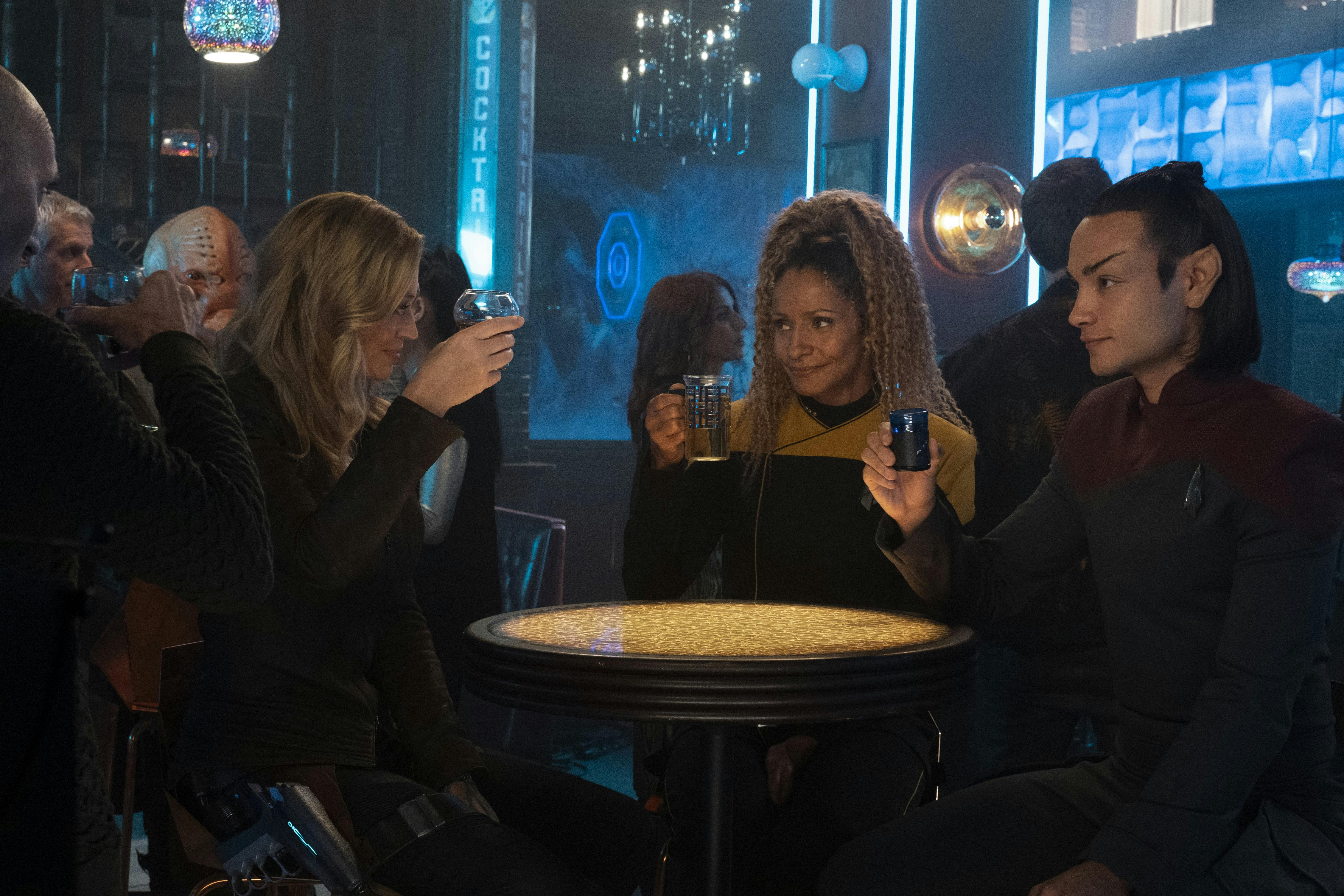
"Farewell"
StarTrek.com
In Elnor, logic and bluntness meets emotion and feeling. That one missing part of me I saw nowhere else... I saw it in him, because in his life, emotions could be just as blunt and direct as logic. It took 25 years, but I finally felt seen. I finally felt like I was real.
My connection to Elnor as a character is exactly why it's so important to remember autism is a spectrum. Not just Borgs and Androids, but also Vulcans and Betazoids and Romulans. Autism has always been more than the Rain Mans and Atypicals, even if TV has made it seem like that's the default. Giving a community more unique versions of representation helps make the world see them for exactly who they are. Beyond that, more diverse representation means more people get diagnosed and more people understand themselves.
The spectrum of autism is vast and complicated and woefully underrepresented, but Elnor is a rare case where more emotionally attuned autistic people can see themselves. Honest and empathetic, passionate and direct. They can and do coexist. With Elnor, people like me can feel heard and embraced with Absolute Candor.

